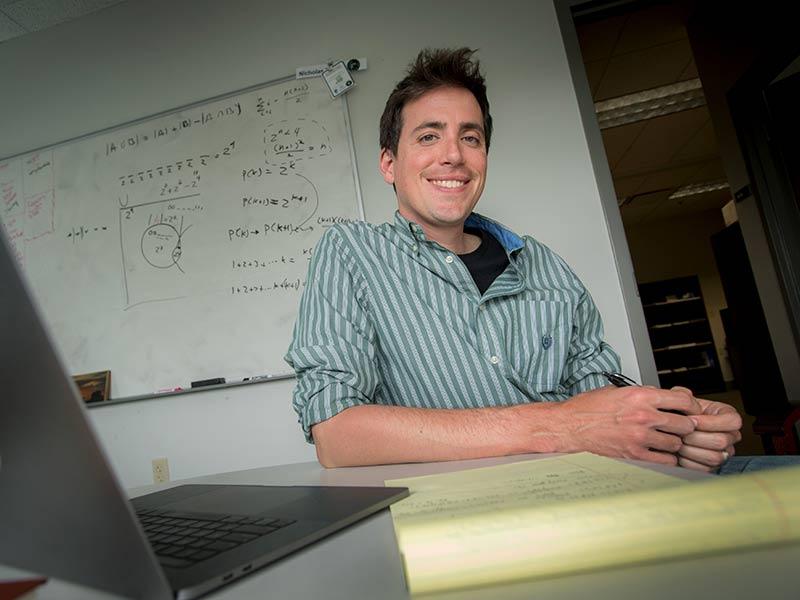Google awards Tulane professor for work promoting diversity and fairness in AI systems
Artificial intelligence experts from Tulane University and the University of Maryland have received a Google Scholar Research Award to develop better ways of promoting diversity and fairness in a variety of pipeline and selection problems, including hiring, graduate school admission and customer acquisition.
Nicholas Mattei, an assistant professor of computer science at Tulane, and John Dickerson, an assistant professor of computer science at the University of Maryland, received the $60,000 award as part of the Google Research Scholars program, an initiative by Google to support early career professors who are pursing research in fields relevant to Google.
“Our work aims to operationalize and incorporate responsible AI practices and techniques into real-world systems, informed by data from real processes at our two universities,” Mattei said. “We’re not going to develop a solution in a year. Our intention is to produce an open-source toolkit, preliminary studies and whitepaper to be discussed by policymakers.”
“This research directly addresses questions of transparency, constraints, and fairness when working with complex, multi-stage decision-making problems."
Nicholas Mattei, assistant professor of computer science at Tulane
The work is an outgrowth of their recent paper, “We Need Fairness and Explainability in Algorithmic Hiring,” presented virtually at the 2020 Autonomous Agents and Multi-Agent Systems Conference.
“Our proposal focuses on graduate admissions but is broadly applicable to any problem where we need to expend a limited set of resources to validate and select a small group,” Mattei said.
In focusing specifically on graduate admissions, a form of academic hiring, Mattei and Dickerson will look at two key factors related to admissions — how to allocate aspects of the process, such as budget and interview slots, and how to explain decisions made by their algorithm in a transparent and compliant way.
“Several recent reports related to algormithic hiring, including one from the non-profit UpTurn, motivates us to focus on how to allocate additional human resources to these problems, and we feel that we must treat issues of bias and fairness as first-order concerns in any system that may have an impact on people,” Dickerson said.
“This research directly addresses questions of transparency, constraints, and fairness when working with complex, multi-stage decision making problems where we need to end up with a recommendation or selection at the end. This type of sequential decision-making problem is typically optimized using multi-armed bandit algorithms,” Mattei said. “But these algorithms may optimize for criteria that we may not intend, or may not even be legal.”
Such algorithms are in widespread use across many of Google’s core areas, including recommendation and advertising and hence understanding them in detail is critically important, he said.
Mattei and Dickerson believe their work will support their thesis that data-driven approaches to measuring and promoting fairness at a single stage of the talent sourcing process can be extended beyond graduate admissions. They said the technologies could be applied to internal product ideation and review, academic proposal reviewing, advertising selection or any setting that involves the collection of recommendations from experts.
“We envision these as algorithms and workflows that could be deployed both internally at Google or offered broadly as screening tools throughout GCP (Google Cloud Platform) and other Google products.”
Mattei and Dickerson have worked closely together for many years, and the fact that they work at two very different academic institutions — one a large public university in a wealthy geographic area and the other a smaller private university in a lower income part of the country — will actually be an advantage in their research.
“The student application profiles at both schools are very different, and will lead to different concerns and distributions of data” Mattei said. “We believe this diversity strengthens the results that will arise from the data-driven validation of our model.”

